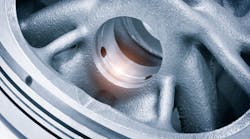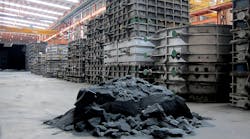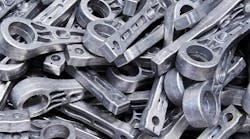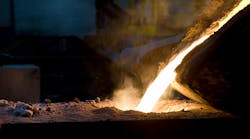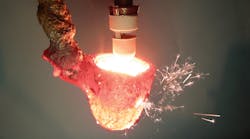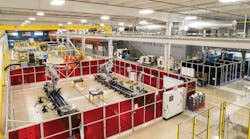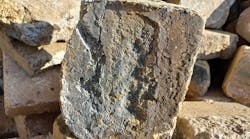A Polish nonferrous foundry, Thoni-Alutec, has acquired an operation in England and plans new investments there, and to expand its own capabilities with the new operation. Details of its purchase of, and further investment in, the Cannop Foundry Ltd. in Gloucestershire were not released, but the new parent company indicated it plans to introduce its new organization at this month’s Subcon exhibition, in Birmingham.
Thoni-Alutec, located in southeastern Poland at Stalowa Wola, produces precision aluminum sand castings and gravity diecastings up to 30 feet long and weighing up to 10 metric tons. Its customers manufacture medical equipment, robotic systems, energy components, combustion engine parts, railway carriage structures, and mechanical engineering parts.
Cannop Foundry commissioned a new, 23,000-ft2 operation in 2007 at Cinderford, with three molding lines, three steel induction melting furnaces for ferrous alloys and five electric furnaces for aluminum melting. The company has earned accreditation form various aircraft and automotive powertrain customers.
Cannop supplies high-integrity castings in spheroidal graphite, gray, austempered ductile iron, CGI, austenitic stainless steel, and wear-resistant, Si-Mo, and Ni-Resist high-temperature irons. Its nonferrous offerings cover the full range of standard aluminum alloys. The Cinderford plant is ISO9001:2008 certified, and holds accreditation from several global manufacturers, too.
The new owners aim for Cannop to “enhance capabilities at its Cinderford base, to provide customers with world-class facilities for the production of low-to medium-volume, high-integrity castings in both ferrous and nonferrous alloys.”
Ongoing investments at the Cinderford plant will include tooling design and production, casting simulation, heat treating, and in-house product testing and verification. “Through strategic partnership with selected machining companies, they will offer further added-value stages to the manufacturing process, thereby enhancing the services supplied to their new and existing customer base,” according to a statement. The goal is for Cannop to offer product development through to finished production.
Subcon — June 12-14 at the National Exhibition Centre in Birmingham — is a trade show of industrial capabilities, with exhibitors demonstrating machining, sheet metal work and stamping, additive manufacturing, electronics, and plastic moldings. It is defined as a platform for locating suppliers and developing manufacturing partnerships.
